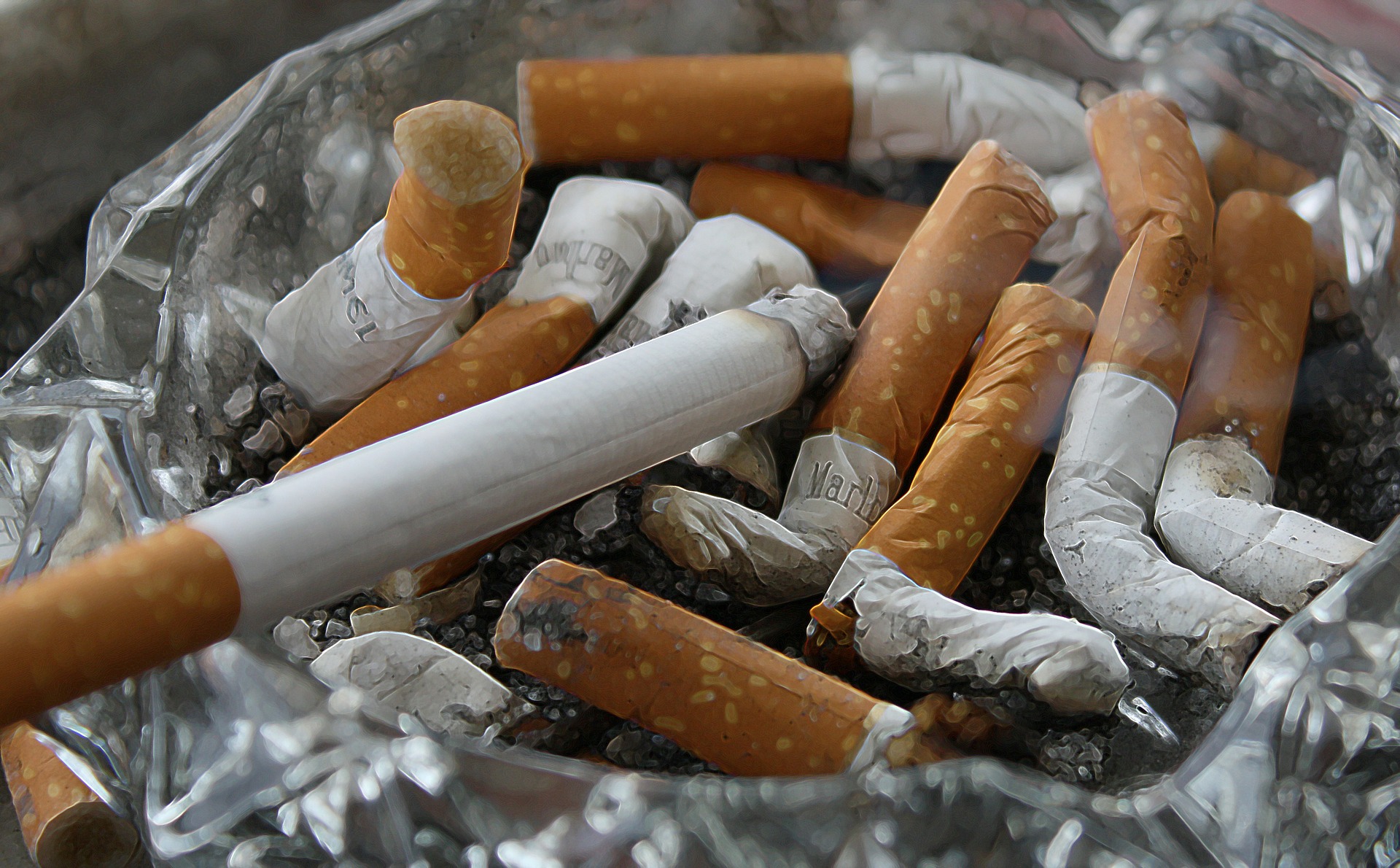By Laura Peterjohn and Lizzie Stricklin
MAIN PHOTO: The sale of tobacco has been banned in South Africa as part of the lockdown measures to combat the spread of COVID-19. SOURCE: Gerd Altmann, Pixabay
Lockdown in South Africa means no social gatherings, no travel, and no smoking or alcohol – much to the public’s disdain. But the science behind this decision suggests that alcohol and smoking not only help spread COVID-19, but weakens users’ immune systems.
The South African government banned the sale of alcohol and tobacco on March 27 as the state went into lockdown to prevent the spread of the novel coronavirus. Although state officials have argued that the ban is a necessary precaution that has reportedly reduced crime, liquor license holders have stressed that the ban is causing undue economic hardship – even going so far as to threaten to take the government to court to force it to lift the ban on alcohol.
On Thursday the Minister for Cooperative Governance and Traditional Affairs, Nkosazana Dlamini-Zuma, announced the ban on alcohol and tobacco sales would continue until the end of April, and that it would be expanded to also include the transportation of alcohol.
Although the ban has induced massive public outcry, medical and scientific studies support the government’s decision.
Links between COVID-19 and smoking – whether it’s tobacco, marijauna, or vaping
Numerous studies have shown that smoking both tobacco and marijuana damages the lungs, which makes the possibility of contracting a respiratory illness like the novel coronavirus more dangerous. Although fewer studies have been conducted on the health risks of vaping, studies suggest it poses a similar threat to healthy lungs.
Smokers may also be more likely to touch their face in the process of smoking or spread the virus by coughing or exhaling, according to Dr. Jonathan Winickoff of Harvard Medical School.
“You bring this device or cigarette to your mouth to inhale and you do so repeatedly,” Winickoff told The New York Times. “You touch the cartridge. You put it next to your face. You are spreading whatever is in your hand into your body. At the same time, many of my patients who smoke or vape have increased coughing or expectorating. And that’s a recipe for increased spread.”
A recent study in the European Respiratory Journal expanded on this, and reported that smoking tobacco may increase the risk of contracting COVID-19 because it elevates levels of an enzyme that makes it easier for the virus to enter the smoker’s lungs. Smoking was even identified in a past study as a factor in patients who contracted another coronavirus, known as MERS, in 2012.
The medical (and social) harms of alcohol
When it comes to alcohol, South Africa’s ban on its transportation and sale is, in part, to limit social gatherings, enforcing policies of social distancing with the hopes of slowing the spread of COVID-19. In doing so, the ban may also lower incidents of violence, freeing space in emergency rooms for those fighting the disease.
The UN has reported a spike in cases of domestic violence since the beginning of the month, calling it “horrifying global surge in domestic violence”. The ban on alcohol sales is hoped to tamper down those incidents as alcohol is considered to be a fuel, although the increased proximity to abusers in abusive relationships during a lockdown is recognised as a concern.
The consumption of alcohol is also known to weaken one’s immune system. The World Health Organization has stressed that alcohol limits the body’s ability to fight infectious diseases like COVID-19, and encouraged people to remain sober and “make decisions with a clear head”. Studies have also shown that individuals who consume alcohol are at a higher risk for developing pneumonia and acute respiratory distress syndrome, both of which are common complications in severe cases of COVID-19.
Aadielah Maker Diedericks, a coordinator for the Southern African Alcohol Policy Alliance, told Public Radio International that “the ban is for people’s own good.”
“Food security is going to become a big issue,” she added. “And if we have people spending the little resources they have currently on alcohol, the bigger issue is going to be hunger.”
Divided support
Despite the scientific and medical backing for South Africa’s bans, calls against it have won some traction. The Garden Route Municipality in the Western Cape lifted the ban on tobacco sales in grocery stores, reportedly to prevent illegal cigarette sales. The Office of the State Attorney will release an official decision on Friday in response to the Gauteng Liquor Forum’s petitions against the ban on alcohol.
Organizations like the Southern African Alcohol Policy Alliance have supported the ban, however, emphasizing, “It is critical for the government to ensure its efforts to mitigate the economic impact of the Covid-19 lockdown include those running liquor outlets, but without rescinding the ban.”
The Economic Freedom Fighters party also rejected calls to end the ban on alcohol, saying, “there is nothing essential about alcohol and it will only serve a destructive purpose in a time when we all need to practice maximum discipline and self-control.” This is in agreement with the African National Congress, which has urged President Cyril Ramaphosa to deny the Gauteng Liquor Forum’s petitions and continue the ban on alcohol transportation and sales.




